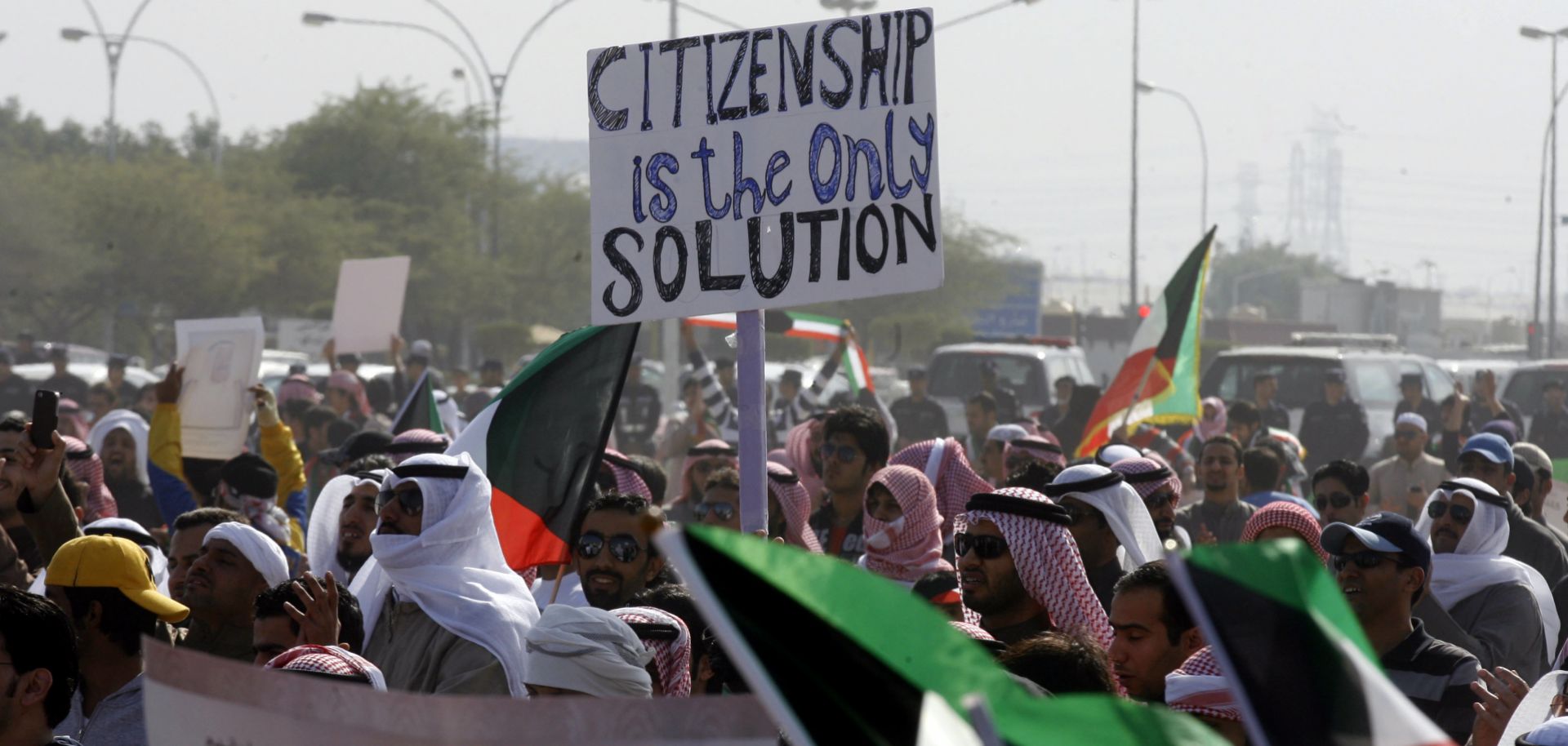ASSESSMENTS
What Greater GCC Citizenship Means for the Arab Gulf’s Stateless Residents
Nov 12, 2021 | 21:45 GMT

Members of Kuwait’s stateless Bidoon community protest to demand citizenship and other rights in Jahra, northwest of Kuwait City, in December 2011.
(YASSER AL-ZAYYAT/AFP via Getty Images)
Subscribe Now
SubscribeAlready have an account?
